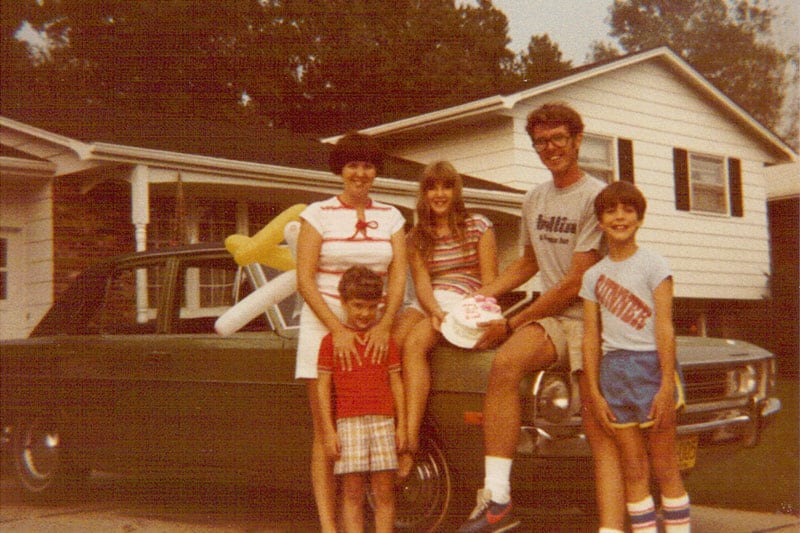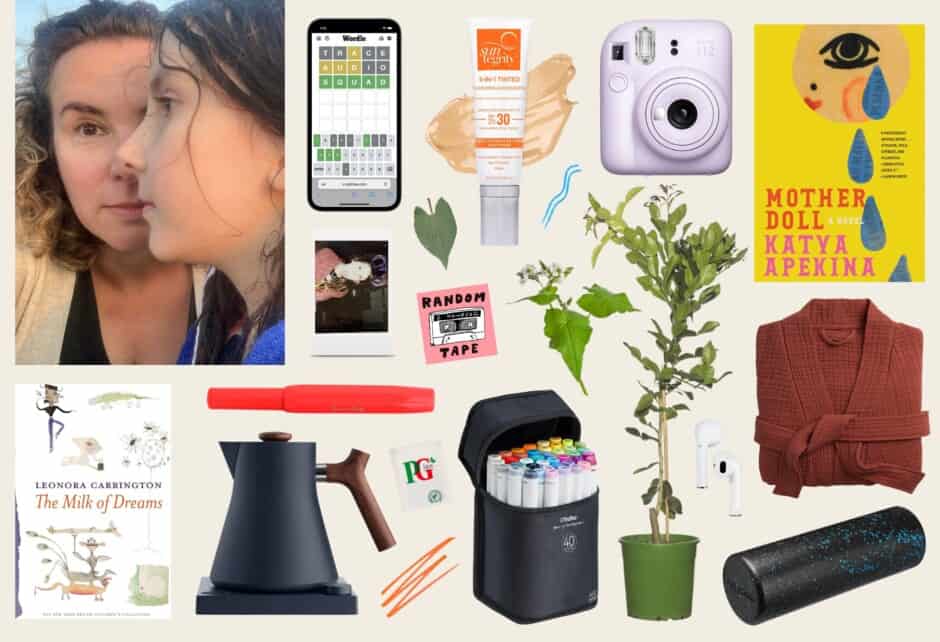
How Parenting Has Changed Since We Were Kids
Written by James Kicinski-McCoy
Photography by Photo via Lynda Drews
Do you every stop and think about how different the world that we live in today is, compared to when we were kids? You know, “the good old days?” While we are thankful for so much of the positive change that the past 20+ years has brought—same-sex parenting normalization, more open-mindedness, and the like—we can’t help but think about some of the sentiments of our past and wonder if maybe, at times, it wouldn’t be such a bad idea to try and embrace some of the simple pleasures of our younger years, rather than indulging in today’s fast-pace, tech-driven world.
With that in mind, we’re taking a walk down memory lane and considering these very big differences between now and when our parents were in charge:
1. When we were little our parents weren’t distracted by cell phones.
There was no surfing Instagram, checking email, or returning text messages while nursing the baby or having family time in the living room. We were engaged with our parents as children. These days, whether we’d like to admit it or not, there is less direct communication due to distraction.
2. We would play outside without a worry.
As children we remember playing outside for hours on end, exploring on our bikes, meeting new friends while at the park by ourselves, and coming home in time for dinner. Nowadays, there is fear in letting kids just be kids due to “bad guys” and pressures. Although, there’s the Free Range Kids movement trying to combat this.
3. Watching cartoons was something special and done on Saturday mornings and after school.
We would wake up early to watch Saturday morning cartoons and rush home after school to catch the afternoon programs before The Five O’Clock News. Today there are over a dozen channels that are solely dedicated to broadcasting cartoons and children’s programs that air 24/7.
4. Our parents took pictures of us and had them developed.
We had photo albums and shoe boxes filled with photographs. The surfaces and walls of our childhood homes were covered in framed photographs. These days with digital cameras and iPhones, printed photos are a rarity, and your child wanting to see the picture you just took is the norm.
5. The only way to speak to other people in your home was by actually speaking to them.
Our parents didn’t text us to come downstairs when it was time for dinner. They didn’t text us a list of to-do’s or a thought that came to mind. Families communicated to each other face-to-face (or on the phone) because there was no other way to do so.
6. We wrote letters and had pen pals.
We wrote letters to our grandparents, our friends, and had pen pals from other countries. The excitement of receiving a letter in the mail was great. We would cover the envelopes in little drawings and stickers and sometimes stuff extras inside. Now we send email and attachments.
7. We had yard sales once a year instead of selling things on eBay.
The garage clean-out and preparation for our annual yard sale was something that we often dreaded as children, but the early rising before the sale, the wheeling and dealing with neighbors and passerby, and the stack of dollar bills that followed created long-lasting memories.
8. Kids listened to the radio and watched MTV (back when it aired music) instead of iTunes and YouTube.
We listened to the radio in our rooms, we watched MTV when we were allowed, and when we fell in love with a band we would save our pennies and go to the music store to buy the tape or CD. Our children watch YouTube videos, have one-click access to new tunes on their phones, and the record shops are mostly out of business.
9. We would rent family movies on the weekends.
Gone are the days of roaming the aisles of Blockbuster and renting VHS tapes or DVDs for Friday night. With online streaming and the Redbox movie stations, the video stores have closed their doors. And while parents today still have family movie nights with the kids, we kind of miss the experience that came along with going to the video store each week.
10. On flights, in cars, and while out to dinner, there were no iPads to keep the kids distracted.
We had to chat during dinners out, there were no TVs in cars, so we gazed out the windows, and on airplanes we had to pack in-flight entertainment because there were no screens to keep kids content. While these modern devices definitely make leaving the house easier for the parents, it’s an interesting thought to think of their absence.
11. We went to the mall to go shopping and hang out.
Our parents would take us to the mall to go clothes shopping, to pick out birthday gifts for our friends, or to meet up with other tweens and teens and walk the halls or hang out in the food court. These days mall culture is fading and most household shopping is done online.
12. Our parents read the newspaper.
We recall our parents sitting down each morning with a cup of coffee in one hand and the newspaper in the other. Modern day parents get their news from their smart phones.
13. Kids had dreams of being astronauts, baseball players, and veterinarians.
While there are still many, many children that hold similar dreams, a common answer from children today when asked “What do you want to be when you grow up?” is often followed with something along the lines of “A famous YouTube-er.” Sigh.
14. We couldn’t wait for the day we got wheels.
There’s a study that shows that kids nowadays are less interested in driving because they are likely escaping through the internet and social media. When we we’re kids we were counting down the days until we turned 16!
15. Our parents would ask family or friends for advice on parenting or read books on the subject.
With shows like Super Nanny and the plethora of parenting sites and blogs available at our finger tips, we are accustomed to seek out answers in this way, as opposed to the traditions our parents did. While we don’t think that this is a bad thing, we take note as it’s yet another parenting method that has changed over the years.
Share this story



